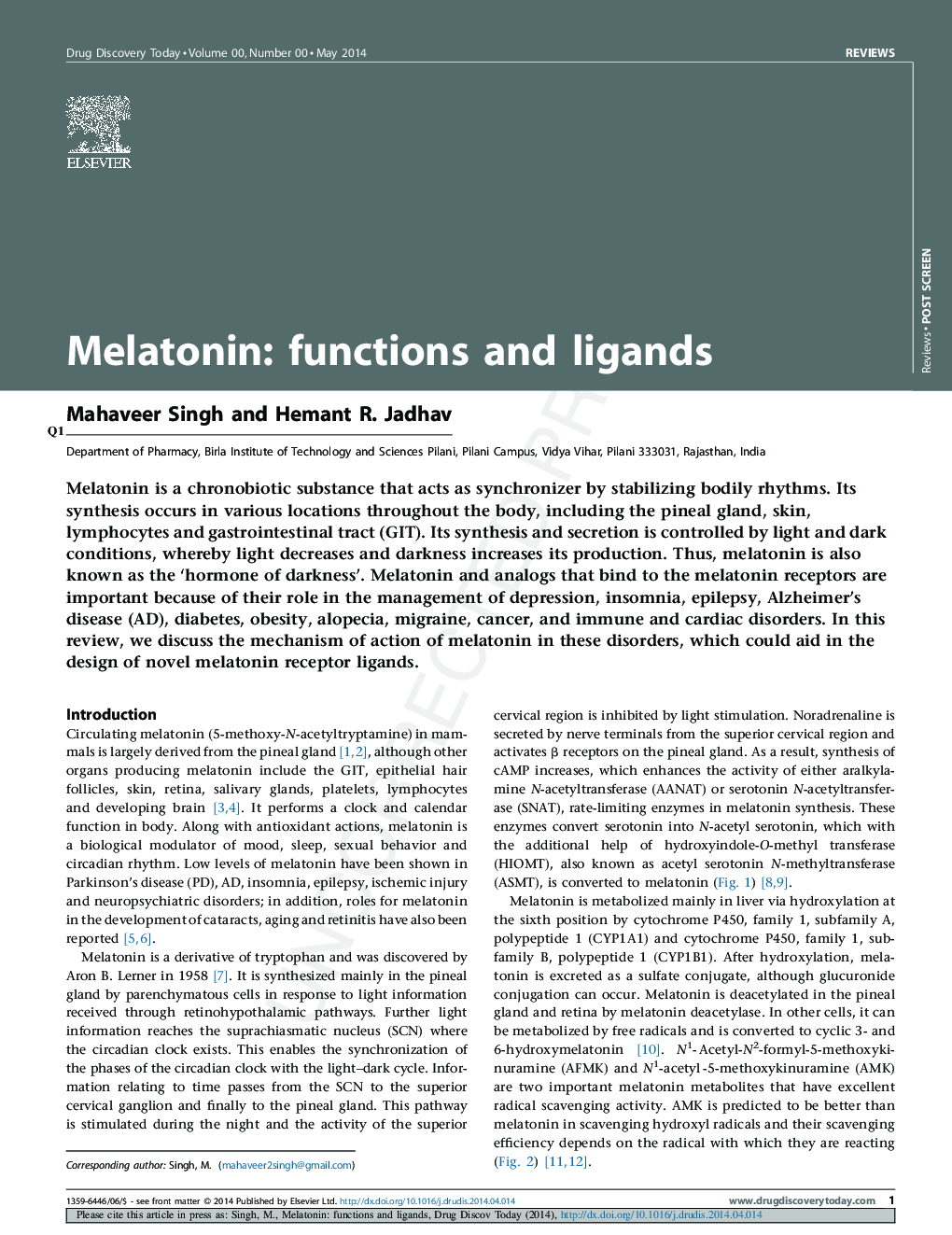| Article ID | Journal | Published Year | Pages | File Type |
|---|---|---|---|---|
| 10886126 | Drug Discovery Today | 2014 | 9 Pages |
Abstract
Melatonin is a chronobiotic substance that acts as synchronizer by stabilizing bodily rhythms. Its synthesis occurs in various locations throughout the body, including the pineal gland, skin, lymphocytes and gastrointestinal tract (GIT). Its synthesis and secretion is controlled by light and dark conditions, whereby light decreases and darkness increases its production. Thus, melatonin is also known as the 'hormone of darkness'. Melatonin and analogs that bind to the melatonin receptors are important because of their role in the management of depression, insomnia, epilepsy, Alzheimer's disease (AD), diabetes, obesity, alopecia, migraine, cancer, and immune and cardiac disorders. In this review, we discuss the mechanism of action of melatonin in these disorders, which could aid in the design of novel melatonin receptor ligands.
Related Topics
Life Sciences
Biochemistry, Genetics and Molecular Biology
Biotechnology
Authors
Mahaveer Singh, Hemant R. Jadhav,
